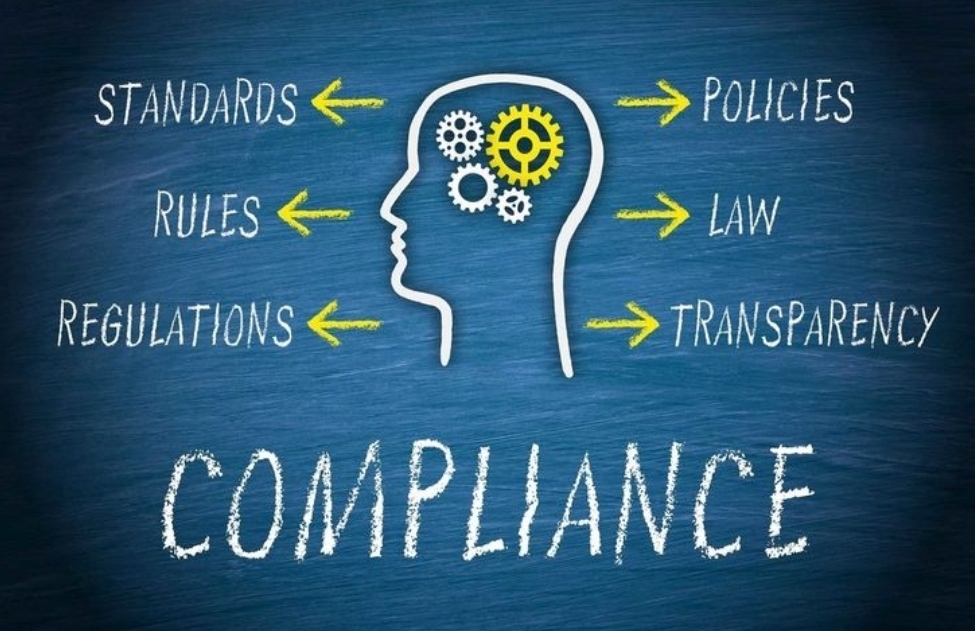
1.0 Introduction
The tax framework of a country is considered a crucial instrument for influencing the country's economy.[1] The tax system in Nigeria consists of the tax policy, laws, and administration[2] which is a tripartite arrangement that works together to govern and implement taxation in the country. This tripartite arrangement is essential in maintaining an effective tax system for revenue generation to catalyze development, however, on concerns bordering on sustainable practices, it has become a necessity to integrate the ESG standard.
This article will explore the role of tax policies and ESG standards in promoting environmental sustainability in Nigeria. It will begin by examining how tax policies can incentivize environmental-friendly practices and fund conservation efforts. Subsequently, it will delve into the significance of ESG standards in enhancing transparency, accountability, and stakeholder engagement regarding environmental issues. The article will then explore the synergies between tax policies and ESG standards. Furthermore, it will address the challenges and limitations associated with implementing these measures in Nigeria, alongside some recommendations.
2.0 Conceptual Clarification
Tax policy refers to the guidelines and principles established by a government for the imposition and collection of taxes. It encompasses both microeconomic and macroeconomic aspects, with the former focusing on issues of fairness and efficiency in tax collection, and the latter focusing on the overall quantity of taxes to be collected and its impact on economic activity.
ESG (Environmental, Social, and Governance), on the other hand, is a term used to describe a set of standards for assessing a company’s performance and effects on the environment, society, and corporate governance.[3]
3.0 Importance of Environmental Sustainability in Nigeria
Environmental sustainability is of paramount importance due to significant environmental challenges and the profound impact of these challenges on our economy, society, and public health as a people.[4]
Nigeria faces issues such as deforestation, air and water pollution, soil degradation, loss of biodiversity, and climate change effects, which threaten the well-being of her citizens and the sustainability of her natural resources.[5]
4.0 Tax Policies for Environmental Sustainability in Nigeria
Nigeria has vast renewable energy potential, including solar, wind, and hydroelectric power. Tax policies can play a crucial role in incentivizing investment in renewable energy projects by offering tax incentives[6] such as tax credits, accelerated depreciation allowances, or tax holidays for companies engaged in renewable energy generation. These incentives reduce the financial barriers to entry and encourage the adoption of clean energy technologies, hence contributing to a reduction in greenhouse gas emissions and mitigating the country's reliance on fossil fuels.
Tax revenues generated from environmental taxes can be earmarked for funding conservation initiatives, environmental protection programs, and biodiversity conservation projects in Nigeria.[7] These funds can be allocated towards activities such as reforestation, watershed management, pollution control measures, and wildlife conservation efforts.
5.0 ESG Standards and Environmental Sustainability in Nigeria
ESG standards hold companies accountable for their environmental impacts and performance by requiring them to assess, monitor, and disclose relevant environmental data and metrics. This accountability[8] ensures that companies are transparent about their environmental impact, identify areas for improvement, and take proactive measures in minimizing adverse environmental effects.
ESG standards also emphasize the importance of collective action and stakeholder engagement,[9] including dialogue and collaboration between companies, communities, government agencies, and civil society organizations. Collaborative approaches to environmental management help promote shared responsibility, local ownership, and inclusive decision-making, leading to more sustainable outcomes and positive social impacts.
6.0 Tax Policies and ESG Standards: The Synergy[10]
Tax policies and ESG standards play complementary roles in promoting environmental sustainability in Nigeria. Tax policies provide economic incentives and disincentives to influence behavior and investment decisions, while ESG standards enhance transparency, accountability, and stakeholder engagement regarding environmental issues. In this regard, policymakers can create a synergistic approach that incentivizes sustainable practices, fosters responsible business conduct, and drives positive environmental outcomes.
7.0 Case Studies or Examples Illustrating Successful Implementation
Several case studies and examples demonstrate the successful implementation of tax policies and ESG standards in promoting environmental sustainability in Nigeria and other countries. For instance, in Nigeria, the implementation of tax incentives for renewable energy projects has led to increased investment in solar and wind power generation, contributing to the diversification of the energy mix and reducing reliance on fossil fuels. Similarly, companies that adhere to ESG standards, such as Dangote Cement,[11] have implemented environmental management systems, adopted cleaner production technologies, and engaged with stakeholders to address environmental concerns.
8.0 Leveraging Tax Incentives and ESG Criteria for Maximum Impact
To maximize the impact of tax policies and ESG standards on environmental sustainability in Nigeria, policymakers can leverage synergies between the two approaches. For example, tax incentives can be aligned with ESG criteria to reward companies that demonstrate strong environmental performance, social responsibility, and corporate governance practices. This alignment ensures that tax incentives are targeted towards companies that prioritize sustainability and align with broader societal and environmental goals.
Emphatically, governments can use tax revenues generated from environmental taxes or levies to fund ESG-related initiatives, such as environmental conservation projects, sustainable infrastructure development, and community engagement programs.
Moreover, integrating ESG considerations into tax policy design and implementation processes can enhance the effectiveness and credibility of environmental tax measures.
9.0 Challenges and Limitations
9.1 Implementation Challenges in Nigeria
Nigeria faces capacity challenges in terms of technical expertise, institutional capacity, and regulatory infrastructure needed to effectively implement tax policies and ESG standards for environmental sustainability. Limited human and financial resources, bureaucratic bottlenecks, and institutional fragmentation hinder the implementation and enforcement of environmental regulations and ESG reporting requirements.
Also, inconsistent policy frameworks, regulatory overlaps, and conflicting mandates among government agencies pose challenges to coherent and coordinated action on environmental sustainability in Nigeria. Fragmented governance structures and jurisdictional disputes often lead to policy inconsistencies, delays in decision-making, and inadequate regulatory enforcement, undermining the effectiveness of environmental policies and initiatives.
Furthermore, inadequate data availability, quality, and accessibility pose significant challenges to evidence-based policymaking, monitoring, and evaluation of environmental sustainability initiatives. Limited data on environmental indicators, emissions inventories, and corporate environmental performance hinder efforts to assess progress, identify priorities, and allocate resources effectively.
9.2 Lack of Enforcement and Compliance Mechanisms
Nigeria faces challenges in enforcing environmental regulations, monitoring compliance, and sanctioning violations due to inadequate enforcement mechanisms, corruption, and regulatory capture. Weak regulatory enforcement undermines the credibility of environmental policies and ESG standards, erodes public trust, and encourages non-compliance among businesses and individuals.[12]
Additionally, limited funding, staffing, and logistical support for regulatory agencies impede the ability to enforce environmental regulations effectively. Insufficient investment in environmental monitoring, inspection, and enforcement activities exacerbates compliance challenges and allows polluters to operate with impunity, leading to environmental degradation and public health risks.
10.0 Overcoming Barriers to Effective Implementation
Nigeria needs to strengthen the institutional capacity of regulatory agencies, enhance inter-agency coordination, and streamline regulatory processes to improve the implementation of tax policies and ESG standards for environmental sustainability. Investing in training, technology, and infrastructure can build the technical expertise and regulatory capacity needed to enforce environmental regulations and promote compliance.[13]
Also, enhancing transparency, accountability, and public participation in environmental governance can foster greater compliance with environmental regulations and ESG standards in Nigeria.[14] Strengthening transparency mechanisms, promoting stakeholder engagement, and enhancing public awareness of environmental rights and responsibilities can empower citizens to hold governments and businesses accountable for their environmental performance.
11.0 Recommendations
Nigeria can strengthen its regulatory frameworks by harmonizing compliance mechanism, environmental regulations, tax policies, and ESG standards to ensure consistency, coherence, and effectiveness in promoting environmental sustainability.
Nigeria can as well leverage public-private partnerships (PPPs) to enhance collaboration, innovation, and resource mobilization for environmental sustainability.
Also, Nigeria can promote awareness of environmental issues, tax policies, and ESG standards through public education campaigns, media outreach, and community engagement initiatives. Raising awareness about the importance of environmental sustainability vis-à-vis the role of tax policies and the benefits of ESG standards can empower citizens, businesses, and policymakers to take action and support sustainable development goals.
12.0 Conclusion
Throughout this article, we have explored the vital roles of tax policies and ESG standards in promoting environmental sustainability in Nigeria. We discussed how tax policies can incentivize green investments, penalize environmental harm, and fund environmental programs, while ESG standards enhance disclosure, attract responsible investments, drive corporate accountability, and encourage stakeholder engagement.
Tax policies and ESG standards are powerful tools for addressing environmental challenges and advancing sustainable development in Nigeria. By aligning economic incentives with environmental objectives, tax policies can stimulate investment in clean technologies, reduce pollution, and fund conservation efforts. Similarly, ESG standards can promote transparency, accountability, and stakeholder engagement, driving responsible business conduct and encouraging sustainable practices across industries.
Moving forward, it is imperative for stakeholders in Nigeria to collaborate and take collective action to address environmental sustainability challenges. They must work together to strengthen regulatory and compliance frameworks, enhance public-private partnerships, and promote awareness and capacity building.
[1] OECD (2015), Policy Framework for Investment 2015 Edition, OECD Publishing, Paris. http://dx.doi.org/10.1787/9789264208667-en accessed 23 August 2024
[2]Mark Dike, ‘An Overview of The Nigerian Tax System: Implications for Foreign Investors’ NIDO (UK South Investment Conference, 17 March 2014) 3
[3] Inrate, ‘ESG Policy: What is it & why is it important?’ (Inrate, 12 May 2023) < https://inrate.com/blog/what-is-esg-policy/ accessed 23 August 2024
[4] Perch Energy, ‘Environmental Sustainability: What It Means & Why It Matters’ (Perch Energy, 22 December 2023) https://www.perchenergy.com/blog/environment/environmental-sustainability accessed 3 May 2024
[5] Khalid Raji, ‘Challenges Facing Policies Against Deforestation in Nigeria’ (EARTH.ORG, 18 January 2022) < https://earth.org/challenges-facing-policies-against-deforestation-in-nigeria/> accessed 23 August 2024
[6] A Orobiyi and S Shanu, ‘Nigeria’s Tax Incentives Will Spur Investment in Energy Sector’ (Bloomberg Tax, 21 November 2023) < https://news.bloombergtax.com/daily-tax-report-international/nigerias-tax-incentives-will-spur-investment-in-energy-sector> accessed 24 August 2024
[7] Jessica Dempsey et al, ‘Biodiversity targets will not be met without debt and tax justice’ (2022) 1 (6) NEE < www.nature.com/natecolevo> accessed 24 August 2024
[8] M O'Leary and W Valdmanis, ‘An ESG Reckoning Is Coming’ (Havard Business Review, 4 March 2021) < An ESG Reckoning Is Coming (hbr.org)> accessed 24 August 2024
[9] ESG Research Team, ‘ESG and Stakeholder Engagement: Enhancing Sustainable Business Practices’ (ESG Research Pro, …) < https://esgresearch.pro/esg-and-stakeholder-engagement/> accessed 24 August 2024
[10] W.F Chai and S Toh, ‘Why tax should feature prominently on the ESG agenda’ (EY, 1 April 2022) < https://www.ey.com/en_sg/tax/why-tax-should-feature-prominently-on-the-esg-agenda> accessed 26 August 2024
[11] KnowESG, ‘Dangote Cement Collaborates on Environmental Sustainability with UNEP and NESREA’ (KnowESG, 18 July 2022) < https://www.knowesg.com/companies/dangote-cement-collaborates-on-environmental-sustainability-with-unep-and-18072022> accessed 26 August 2024
[12] Taiwo Oyedele, ‘The key issues and challenges of implementing the National Tax Policy (Part 2)’ [2014] NLI 2
[13] Hussien Hegab et al, ‘Toward sustainable future: Strategies, indicators, and challenges for implementing sustainable production systems’ (ScienceDirect, 6 July 2023) < https://doi.org/10.1016/j.susmat.2023.e00617> accessed 26 August 2024
[14] Ibid.




















































